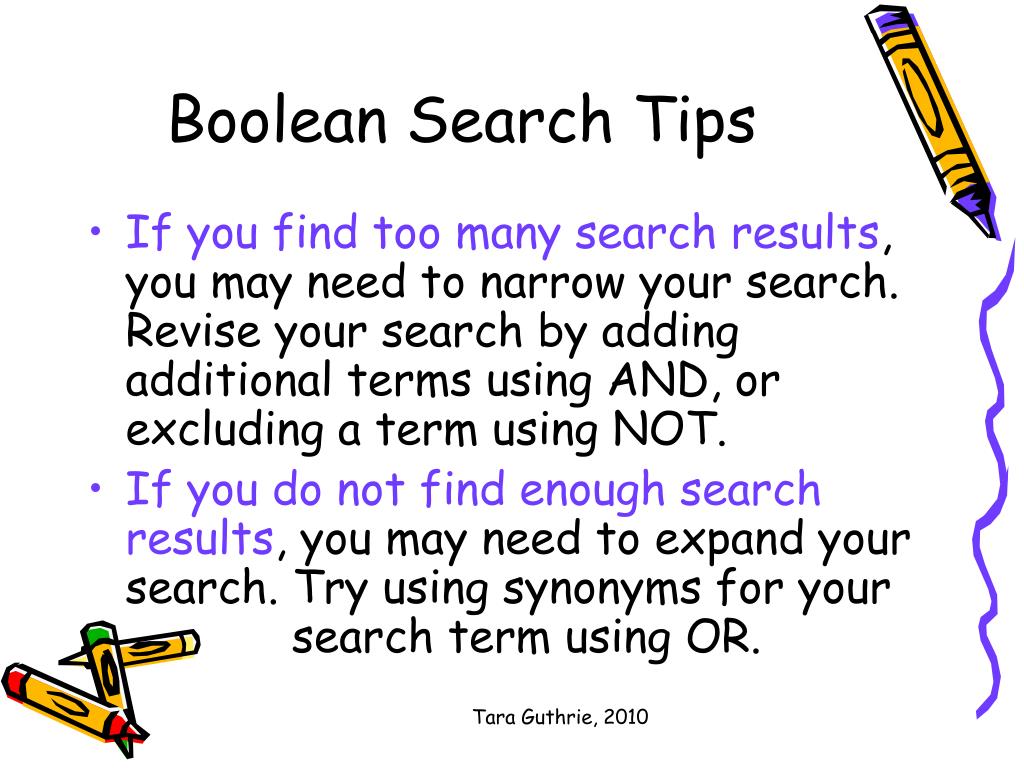



Think back to doing math equations in school – the brackets work the same way in a database. Using round brackets ( ) in a search statement tells the system the order in which to perform the search. To do this, enclose the terms connected with OR within parentheses. It is possible to perform complex Boolean searches in which more than one Boolean Operator is used. This should be done cautiously, because as well as deleting the unwanted items, such a search will also eliminate records that discuss both the relevant topic as well as the unrelated topic. If you are retrieving many records that are unrelated to your topic, try using the NOT operator to eliminate a word. NOT is used to exclude a particular word or combination of words from your search results. If you are retrieving too many records, try adding another search term with the Boolean Operator AND. This search query would return a much smaller set of records, and the items found would be more specific to your research question. If you are retrieving too few records, broaden your search by adding a synonym with the Boolean Operator OR.ĪND is used to join words or phrases when both (or all) the terms must appear in the items you retrieve. The OR operator is particularly useful when you are unsure of the words used to categorize your topic or if information on your topic is even available. OR is used to join synonymous or related terms, and instructs the search tool to retrieve any record that contains either (or both) of the terms, thus broadening your search results. There are three common Boolean operators: AND, OR, NOT (it's best to capitalize Boolean operators because some search tools require it).


 0 kommentar(er)
0 kommentar(er)
